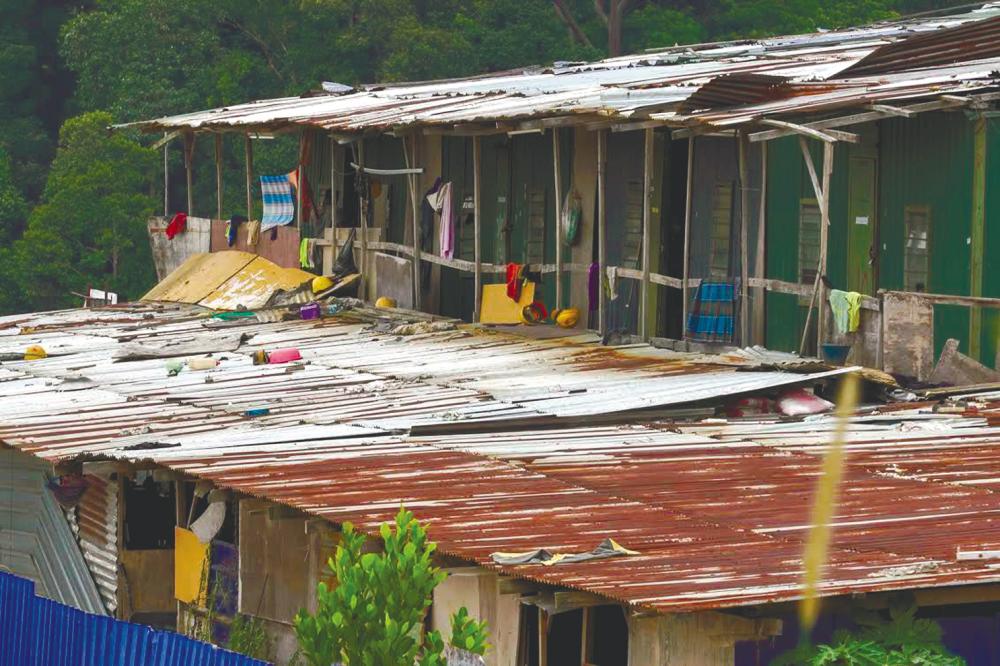PETALING JAYA: The Federation of Malaysian Manufacturers (FMM) and the Malaysian Employers Federation (MEF) have urged the government to provide adequate centralised labour quarters (CLQ) for the estimated 1.1 million foreign workers in the country.
FMM president Tan Sri Soh Thian Lai said employers are bound by requirements in the Employees’ Minimum Standards of Housing and Amenities Act 1990 (Act 446), which came into force in September 2020.
However, they were given a grace period of until December last year, considering the challenges in obtaining approvals from local councils and the Labour Department for the certificate for accommodation (CFA).
“These challenges still exist. Ideally, the government should support the implementation of Act 446 by providing adequate CLQ in all states. There is an acute shortage of CLQ in the country, especially for foreign workers, who must be provided with housing,” Soh said.
“The Housing and Local Government Ministry, via the Federal Department of Town and Country Planning, has been very cooperative in converting existing housing or hostels to temporary living quarters (TLQ). But that is only a temporary arrangement while waiting for permanent CLQ to be built.”
Soh added that employers continue to face challenges from state governments or local councils in converting their existing workers’ housing to TLQ, especially those housing workers in shophouses or within residential areas.
He said the inability to obtain the CFA, which is now a mandatory requirement, will hamper their applications for foreign workers and cause hardship to employers facing a serious shortage
of workers.
Such circumstances could even derail their business recovery efforts.
“From the onset of the introduction of Act 446, FMM had been calling on state governments to advocate a public-private partnership model and allot land to build hostels or CLQ,” Soh said.
“This is especially so where there are restrictions in housing foreign workers in residential areas or shophouses. State governments should work with the private sector to build CLQ in designated areas, preferably within or close to industrial parks.”
Meanwhile, MEF president Datuk Dr Syed Hussain Syed Husman said the grace period for employers to comply with Act 446 is insufficient, considering the devastating effects of the pandemic, the recent floods and current economic conditions.
“Employers need more time to comply, given the high costs involved in renovating accommodation in line with specifications spelt out by local authorities.”
He also said strict enforcement of Act 446 would adversely affect the business revival initiatives of most industries during the pandemic.
“The government should facilitate the intake of more foreign workers rather than control it. CLQ should also be prepared in advance, pending approval permits for foreign workers.”
Syed Hussain added that the government should build more centralised housing to be rented out to employers applying for foreign workers as it is not cost-effective for the latter to construct workers’ accommodation at their own cost.
“Moreover, the approval of employers’ applications for foreign workers is uncertain, while the employment of foreign workers is not permanent either.
“Due to the high cost involved and the temporary nature of foreign worker employment, building accommodation for them is not the best option for employers,” he said.










